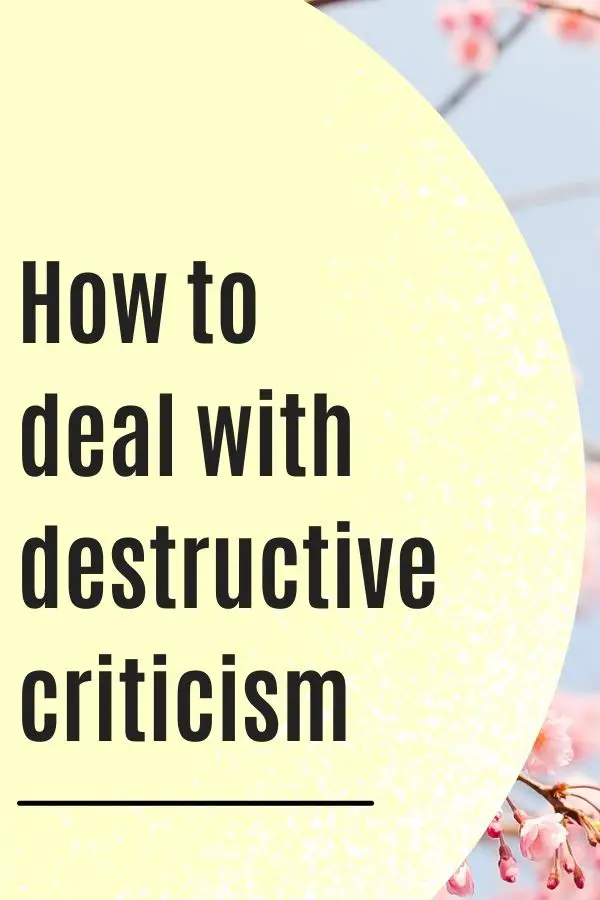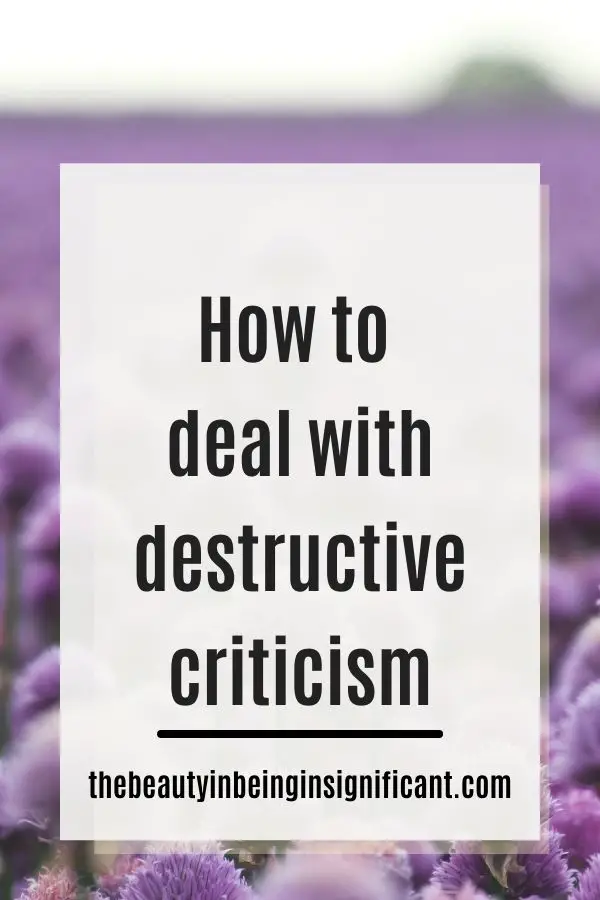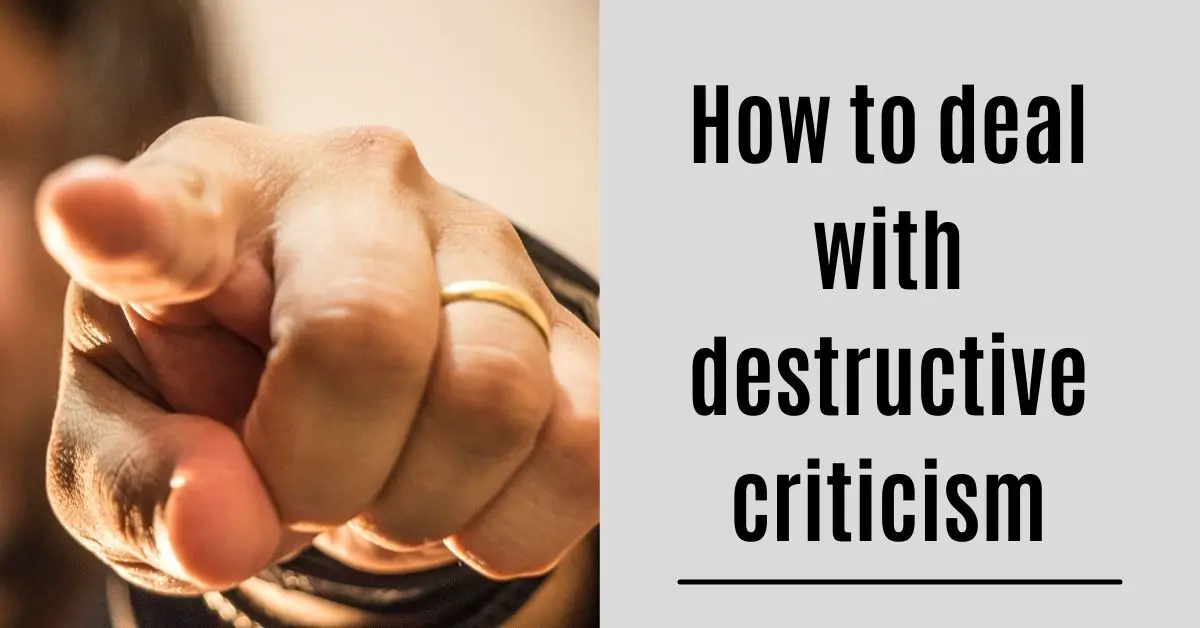I am a firm believer that no matter the situation you’re facing, there’s always a lesson to be learnt. However, not all situations are built the same. Sometimes, you’re going to get criticism that isn’t helpful at all. This could come from friends, spouses, or co-workers. In today’s post, we’re going to be talking about a few ways to deal with destructive criticism.

Table of Contents
Constructive vs Destructive Criticism
Before we begin, let’s briefly discuss the difference between constructive and destructive criticism. The keyword here is intention. Criticism that is constructive is usually done with the intention of trying to help us. It may be harsh but it’s usually fair.
An example would be ‘Your writing needs to be more concise and use less slang, it’s not at the level for this job role’. It may be difficult to hear this, but it
- Sets out a clear problem.
- The reasoning behind it.
- What needs to be worked on.
On the other hand, destructive criticism is done with the goal of destroying our self-esteem using personal attacks. An example would be ‘I can’t believe how stupid you are. Your writing is so bad. How did you even get this job?’. There are two key differences between this and the prior example is
- Unnecessary name-calling – ‘Stupid’
- Nothing to work on – ‘Your writing is so bad’, but why?
So, now that we know what destructive criticism is, let’s focus on how we can deal with it.
How to deal with destructive criticism
Listen
In theory, it’s quite easy to tell the difference between constructive and destructive criticism. However, all logic goes through the window when we’re placed in tense, emotional situations.
As I’ve explained in previous posts, humans have a fight-or-flight response that kicks in whenever we perceive a threat. It doesn’t have to be physical; it can be psychological as well. When we’re in a scenario where we’re receiving criticism, our body’s natural tendency is to activate this response.
A side effect of this is that we tend to get more defensive than usual. Statements that normally have a neutral tone would be misinterpreted as a negative attack. It’s our brain’s way of trying to protect us. So, when we’re receiving criticism, we need to listen carefully to determine what is being said. Are you actually being attacked or is your ego being threatened?
Know that it has nothing to do with you
Once you’ve realised the unfortunate situation that you are in, the next thing you’re going to do is to try to resist the enter ‘proving mode’. I’ll explain. What usually happens we’re faced with destructive feedback is that we desperately try to prove to ourselves and the critic that the negative words are false.
I’ll be better. It was because of (insert reason). It’ll never happen again. All you’re doing by speaking these words is affirming to both yourself and them, that their actions against you are completely justified. It gives them complete power over you and it slowly transforms the way you see yourself.
However, the real truth of the situation is that when criticism crosses the threshold of constructive into destructive, it rarely has anything to do with what you’ve done. One life lesson that I will hold on to till I die is that the way people treat you is a reflection of how they see themselves.
If someone feels the need to berate and destroy your self-esteem, hiding behind the face of criticism, then clearly, they have their own issues that need to be addressed. I’ll say this once again. It has nothing to do with you.
However, all of that is out of control, so to deal with destructive feedback, in this case, all you need to do is take a mental step back after the event. Try as much as possible to not get sucked into their negativity and look for what can be learned. I tend to write down everything that was said, and then one by one go through reasons why it may/may not be true. This way, I have an honest assessment of what needs to be improved.
Walk away
Take this final piece of advice with a grain of salt as it is entirely context-specific. However, sometimes to deal with destructive feedback, you simply need to remove yourself from the situation.
I used to think that every experience has a silver lining. However, over the years, this has led me to remain in conversations that not only sucked my energy, but had a long-standing negative effect on my self-esteem.
So, now when faced with destructive criticism, especially from friends and family, I politely excuse myself from the conversation before things get too heated. By doing this, you’re removing all the power from the critic, and saving yourself from getting trapped in a negative cycle.
However, during work situations, this may not be an ideal approach, hence the warning earlier. If you can’t excuse yourself immediately during the talk, then I highly suggest that you take a brief walk afterwards to cool off. The more you try to get back on task after an emotional event such as this, the more distraught you’ll become as you hyper-focus on the comments said.
What do you think? Have you ever been faced with a situation where the criticism you were receiving was clearly more destructive than constructive? How did you handle it? Let me know in the comments below. I’m curious!


